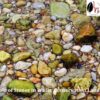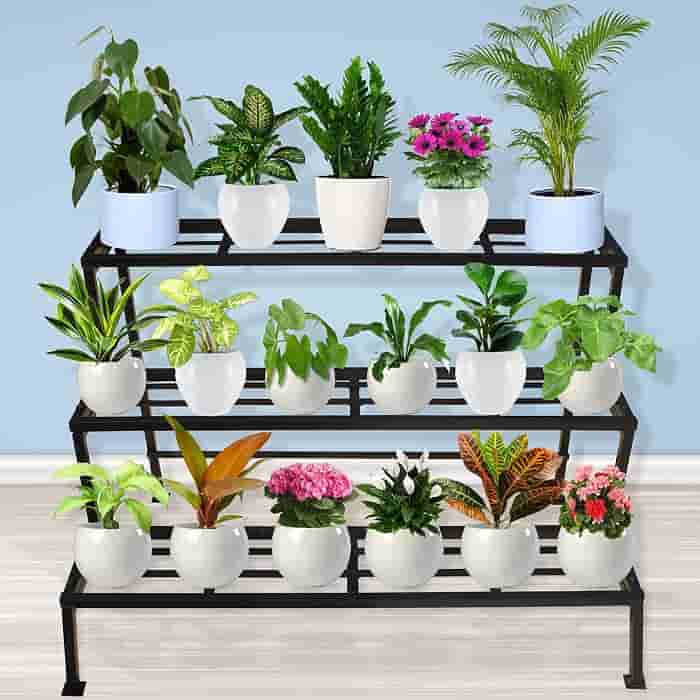This is one of the easiest natural ways to improve your garden soil. Composting enhances plant growth; it saves you water and reduces waste. So whether you are a beginner or an expert, here are 12 easy tips to help you get most from your composting efforts.
Here are the top 12 Essential Garden Composting Tips for a Thriving Garden-
- Choose the Right Compost Bin
First, select the perfect composting bin for your garden. There is a possibility of purchasing or even building a simple bin using relatively uncomplicated materials. A good composting bin should be able to aerate and facilitate easy access to the content.
- Find out the right place
Position your compost bin in a shady or semi-shady location. Don’t sit it directly in the full sun since this can dry out the pile. The best position is usually one that is convenient to use from your garden.
- Use a Balanced Mix of Ingredients
An ideal compost pile is always a good mix of green and brown materials. The green materials are mostly the vegetable leftovers, grass clippings, and coffee grounds. Very good examples of brown material are the dried leaves, straw, and cardboard.
- Turn the Compost Regularly
To be helpful, the pile must regularly be turned since this aeration helps speed up decomposition. Turning also breaks up the pile, ensuring that a part of it is not too compacted in one area and tends to retard the rate of composting.
- Keep It Moist
This pile must be moist but not wet. It must be wet enough that you cannot squeeze water out of the compost. If it is too dry, it decomposes slowly and too moist gives it offensive smells. Water the pile sometimes to achieve the right balance in moisture.
- Do Not Include Specific Items
Do not add some content to your compost. That includes products such as meat, dairy, oils, and pet waste because these tend to attract pests and smell awful. Stick to what borders plant-based material for the best results.
- Shred Large Items
Big pieces, like branches or thick stems, take much longer to break down. Shred or cut them into smaller pieces before adding them to your compost. This will help speed up the composting process.
- Start with a Layer of Browns
The first layer that you should put together when building your compost pile is a layer of brown material. This provides for good airflow and prevents your compost from getting too wet. Brown materials also help control odours.
- Add Compost to Your Garden Regularly
As soon as the compost is mature enough, apply it to garden beds at regular intervals. Compost protects the soil’s structure, introduces nutrients into it, and does not let moisture escape quickly. It further enhances the healthy growth of plant roots.
- Utilise Kitchen Scraps Wisely
These kitchen wastes are a very good compost, but there is an overuse of it. A greater amount of food waste would attract pests, and the process of decay is also hindered. So mix them with brown waste products like leaves or cardboard.
- Watch for Pests
Although a healthy compost pile will rarely attract many pests, keep an eye out. If you find hamsters or insects, it may be a sign that the pile received the wrong materials. Adjust the ratio and the problem will resolve itself.
- Be Patient
Composting is something that requires time. All you need to do is wait patiently and give nature its room. Actually, it takes from a few months to even a year, depending on both climate and composting method, but nutrient-rich compost is ready for use in the garden.
Benefits of Composting for Your Garden
Compost can create nutrient-rich soil for your garden in a wonderful way. It helps increase the strength of your plants and makes them more resistant to diseases and more flowerful or fruit-bearing. Moreover, composting also enhances the drainage properties and water-holding capacity of the soil, all very good things for plant health.
Composting in Urban Areas
Even for those residing in cities, like Indore, it is not very difficult to compost. You do not require a large space or garden to begin with this sort of activity. Small compost bins can also be accommodated on a balcony or even on the terrace and, thus, is pretty much possible for city dwellers too.
If you are searching for plants for home decor in Indore, you can easily visit the biggest nursery in Indore. There you will have many varieties of plants that will bloom well in nutrient-rich composted soil. On top of this, they might be providing you with plants; they could also give you the best tips regarding composting and gardening.
Composting Reduces Waste
It reduces the amount of organic waste in landfills, hence protecting the environment. Furthermore, it turns what could be wasted into something useful for your garden. So, composting is both beneficial for you and for the whole planet.
Choosing the Best Composting Materials
As noted earlier, not everything can be composted. Select only materials that break down easily and add value to your compost. Some of the best materials to use include leaves, grass clippings, and vegetable scraps.
Conclusion
Composting is a simple yet highly rewarding activity for any gardener. With these 12 essential tips, get rich, fertile soil to a flourishing garden. Remember that you have to maintain the right mix of green and brown materials, turn the pile regularly and be very patient. Time will make your garden bloom.
If in Indore then go to the best plant nursery in Indore with experts and quality plants










Recent Comments